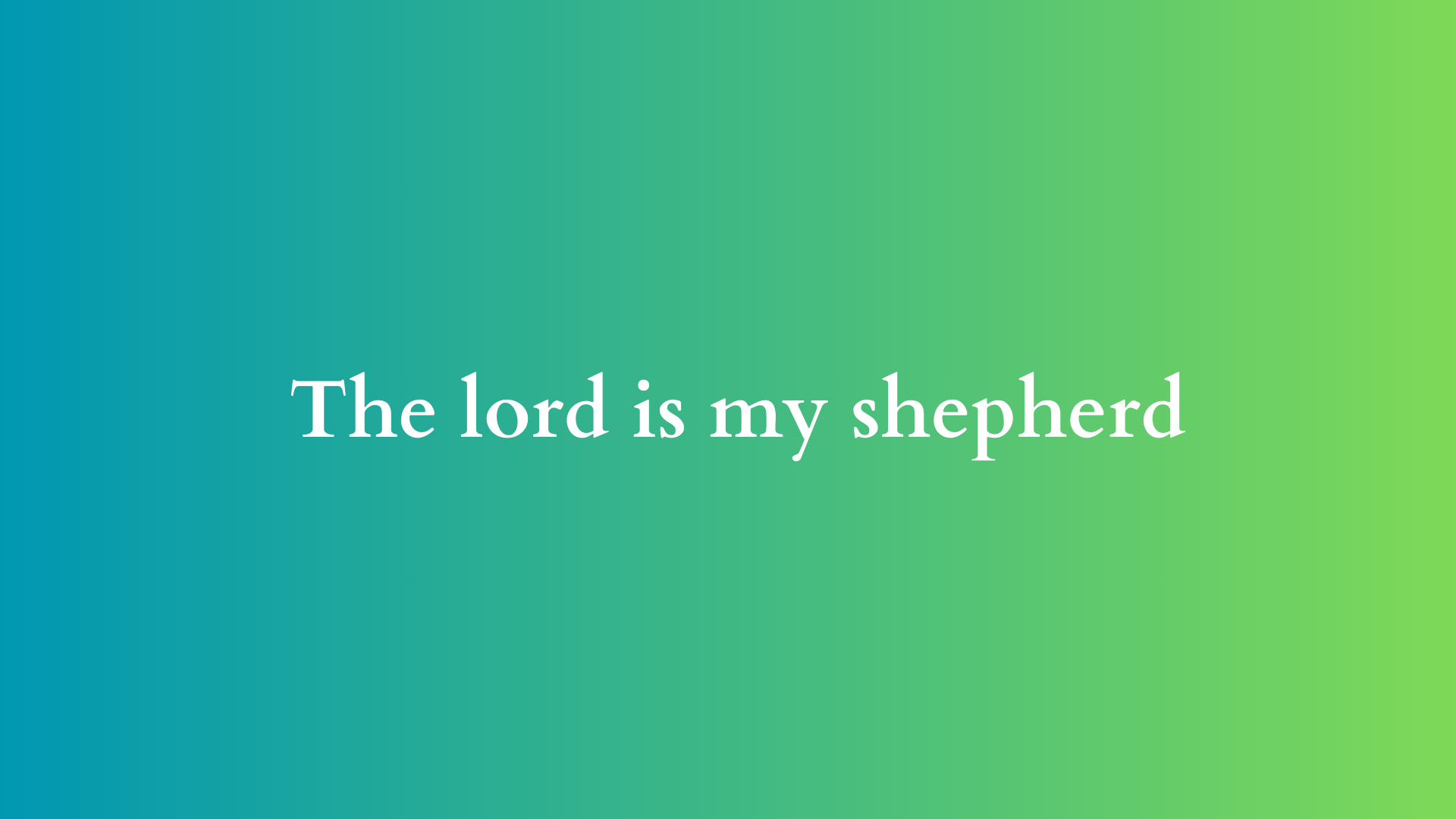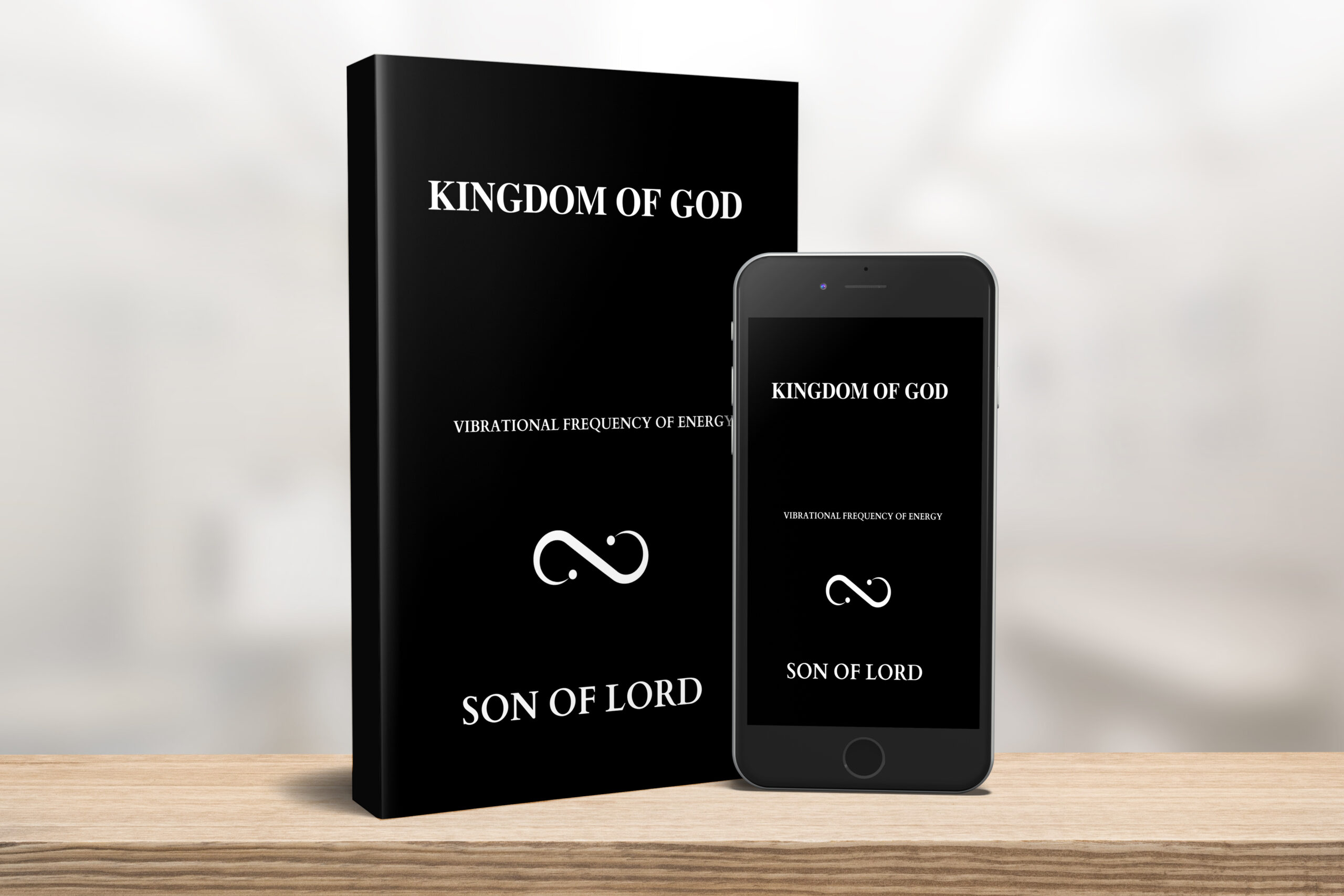The Lord Is My Shepherd: An Exploration of Faith, Guidance, and Comfort
Introduction
The phrase “The Lord is my shepherd” is one of the most recognized and quoted lines from the Bible, specifically from Psalm 23. This brief yet profound assertion captures the essence of a relationship between the divine and humanity, reflecting themes of guidance, protection, and solace. For believers, this passage resonates not only as a declaration of faith but also as a source of comfort in times of distress. In this blog post, we will delve into the deeper meanings of this verse, exploring its historical context, theological significance, and its application in contemporary life.

Historical Context
To fully appreciate the meaning of “The Lord is my shepherd,” it is essential to consider the historical and cultural context in which the Psalm was written. Traditionally attributed to King David, a former shepherd himself, Psalm 23 emerges from a period when pastoral life was integral to the Hebrew culture. Shepherding was not merely a profession; it was a deeply symbolic activity that resonated with the spiritual lives of the people.
In the ancient Near East, sheep were vital for sustenance, clothing, and trade. Thus, the shepherd became a symbol of care, responsibility, and leadership. David’s experiences as a shepherd informed his understanding of God’s relationship with His people. Just as a shepherd tends to his flock, ensuring their safety and guiding them toward nourishment, so too does God oversee and nurture those who seek Him.
Theological Significance
Theologically, Psalm 23 encapsulates several critical doctrines such as divine providence, protection, and the assurance of salvation. When David declares, “The Lord is my shepherd,” he positions God not just as a distant deity but as an intimate guide in his life’s journey. This relationship denotes trust and reliance on God’s wisdom and strength.
Divine Providence and Guidance
The idea of God as a shepherd underscores the concept of providence. In verse 2, the Psalmist states, “He makes me lie down in green pastures. He leads me beside still waters.” Here, the imagery of lush pastures and calm waters symbolizes peace and restoration. The green pastures signify abundance, while the still waters represent tranquility—essential elements of spiritual well-being.
In a world filled with chaos and uncertainty, these metaphors offer profound reassurance. Believers find comfort in the notion that God actively guides them toward places of spiritual nourishment and tranquility. This guidance is not only physical but emotional and spiritual, as one navigates life’s trials and tribulations.

Protection and Security
Furthermore, the theme of protection is powerfully articulated in verse 4: “Even though I walk through the valley of the shadow of death, I will fear no evil, for you are with me; your rod and your staff, they comfort me.” This verse reflects the stark realities of life, acknowledging that darkness and danger are ever-present. However, it also emphasizes that faith in God serves as a protective shield.
The “rod” and “staff,” implements used by shepherds, symbolize protection and guidance. The rod could be used to ward off threats, while the staff reassures the sheep, redirecting them when they veer off course. This serves as a metaphor for God’s intervention in our lives, offering protection and redirection when we encounter moral and spiritual perils.
The Assurance of Salvation
The latter verses of Psalm 23 culminate in a vision of eternal communion with God: “Surely goodness and mercy shall follow me all the days of my life, and I shall dwell in the house of the Lord forever.” This culminates the themes of provision, protection, and peace into a promise of eternal life. The “house of the Lord” signifies a place of perpetual safety, belonging, and divine presence.
For many believers, this assurance of salvation is central to their faith. It serves as a reminder that, regardless of life’s challenges, there is a divine promise of peace and eternity with God.
Contemporary Application
In today’s fast-paced and often tumultuous world, the message of Psalm 23 remains relevant and vital. Many individuals grapple with feelings of uncertainty, anxiety, and isolation. The invitation to view God as their shepherd can offer solace in challenging times. Here, we will explore how this metaphor can be actively employed in daily life.
Building Trust in God
Embracing the notion of God as a shepherd encourages individuals to cultivate trust in divine guidance. In practical terms, this might involve prayer, meditation, or reflection, allowing believers to surrender their worries and anxieties to God. Trusting in divine wisdom can lead to a greater sense of peace, even when circumstances are less than favorable.
Seeking Spiritual Nourishment
Just as a shepherd leads sheep to green pastures, individuals are encouraged to seek spiritual nourishment amidst the noise of daily life. This comes in various forms—be it through scripture study, attending worship services, or engaging in community service. Such activities can rejuvenate one’s spirit, align their actions with their faith, and foster a deeper connection to God.
Finding Community
The metaphor of the shepherd also underscores the importance of community. Just as sheep rely on their flock for support and safety, individuals in faith-based communities offer each other encouragement and guidance. Building relationships within a church or spiritual group can enhance one’s journey of faith, providing comfort and a sense of belonging.
Responding to Life’s Valleys
Lastly, embracing the reality that life will include valleys is vital for spiritual growth. Understanding that challenges are an integral part of life can lead believers to seek God’s presence in difficult times. Knowing that the shepherd walks alongside them provides the courage to face adversity with hope and resilience.
Conclusion
“The Lord is my shepherd” is a profound declaration that transcends time and culture, inviting believers into a deeper understanding of their faith. This simple yet powerful verse encapsulates the themes of divine guidance, protection, and the promise of eternal life, providing a roadmap for navigating life’s complexities.
As individuals embody this metaphor in their lives, they discover not only solace in hardship but also a profound sense of community and purpose. In a world that often feels overwhelming, the assurance of God’s shepherding presence can inspire hope, offering a reminder that they are never alone on their journey.
In conclusion, let us embrace the comfort that comes from recognizing the divine as our shepherd. Let us trust in His guidance, seek out sources of spiritual nourishment, and find strength in community, knowing that God’s goodness and mercy follow us all the days of our lives.






